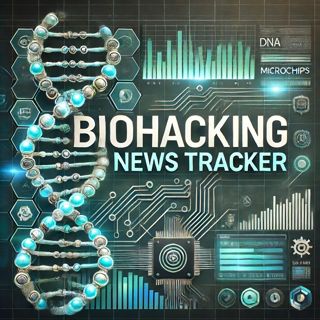
Headline: Biohacking Revolution: From Brain Enhancement to DIY Gene Editing
Biohacking has emerged as a fascinating frontier in the intersection of science and self-improvement, with enthusiasts and experts pushing the boundaries of what the human body and mind can achieve th...
28 Sep 20243min

Biohacking Boom: Optimizing Health, Performance, and Longevity
Biohacking has become a prominent trend among those seeking to optimize their health, enhance performance, and perhaps most intriguingly, extend their lifespan. This practice intertwines technology, b...
26 Sep 20242min

"Biohacking: Pioneering the Frontiers of Science and Challenging Religious Notions of Immortality"
Biohacking represents a striking frontier in contemporary science, intertwining biological research with the hacker ethos of exploration and innovation. Biohackers, individuals or groups engaged in th...
24 Sep 20242min

Biohacking: Empowering Individuals or Raising Ethical Concerns?
Biohacking, a term that blends biology with hacking, describes a wide array of practices that aim to manipulate biology to enhance the body's performance, optimize health, or alter one’s biological ma...
21 Sep 20242min

Biohacker Dave Asprey's Sleep Optimization Routine Pushes Boundaries
Biohacking has taken wellness to a new frontier, with advocates like Dave Asprey leading the charge. Synonymous with applying systems thinking and self-experimentation to optimize human functioning, b...
19 Sep 20243min

"Biohacking Boom: Customizing Health and Beauty from Genetics to Skincare"
Biohacking, often referred to as DIY biology, is an emerging practice in the wellness and health industries where individuals apply the hacker ethic to enhance their body's natural functionality. This...
17 Sep 20243min

"Biohacking GP Blends Traditional and Modern Medicine to Enhance Skin, Brain Health"
Biohacking has been gaining traction among those seeking to optimize their health and wellness by using science and technology to make precise, guided modifications to their body’s physiology. One sig...
15 Sep 20242min





















